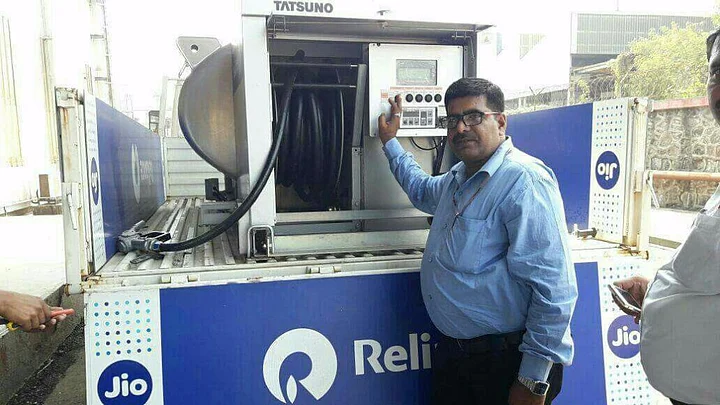After food, clothes, electronics and groceries, the government of India now plans to allow home delivery of petrol and diesel to reduce “queues” at petrol pumps, according to a tweet from the Petroleum Ministry on 21 April 2017. The plan has raised a number of red flags as it violates the licence conditions for petroleum dealers and could be a huge safety hazard.
According to Hemant Sirohi, member of the interim working council, Uttar Pradesh Petroleum Traders Association, the move by the Petroleum Ministry violates the Petroleum Act 2002 and the licensing rules of the Petroleum and Explosives Safety Organisation (PESO).
Without getting into the various sub-sections of the act, the Petroleum Act 2002 licensing rules that this violates are:
Petroleum products of Class A (Petrol) and B (Diesel and kerosene) can be unloaded at licensed premises only.
Petroleum carried in a licensed vehicle (fuel tanker lorries) shall not be directly transferred to any container or fuel tank of an internal combustion engine.
A licensed fuel carrying vehicle shall not stop at any road or congested place or a place that is not approved by the Chief Controller of Explosives.
Petroleum shall not be filled from a tank or pump into any receptacle that is not securely fitted to a motor vehicle. Exceptions to this are 25 litres of petrol (Class A fuel) in an approved container in case a vehicle cannot be brought to the filling station. Or 200 litres of diesel or kerosene (Class B fuel) in an approved container, provided no vehicle with its engine running can be brought within 4.5 metres of the dispenser or storage container.
However, Sirohi says there are exceptions, and this is what is likely being exploited to allow this. “Under licence form XV, if you have permission from PESO for a barrel point attached to your retail outlet, you can fill a mobile bowser or tanker,” he says. This amendment was made in 2011.
Oil marketing companies, especially nationalised ones such as Indian Oil, Bharat Petroleum and Hindustan Petroleum, will now also have to figure out the mobile delivery of fuel.
Petrol pump owners The Quint spoke with are clearly not happy with this move. They say their margins are already wafer thin and lament that the move is aimed at favouring a select few private petroleum companies. However, none of the petrol pump owners wanted to say this on record for fear of retribution from the government in some form.
Public sector oil marketing companies’ dealers are clearly feeling shortchanged. Dealers say their request for increase in margins (of Rs 138 per kilo-litre of petrol and Rs 102 per kilo-litre of diesel) has still not been addressed, and now this move will further hurt their volumes.
Only A Few Benefit
So, who are the few who benefit from this? According to petrol pump owners, it is the brands that have been unable to secure enough land for fixed retail outlets and are hence taking the mobile route to expand their reach.
In Bengaluru, PESO is fighting a case against a fuel retailer who sought to use mobile bowsers to bring fuel to customers’ doorsteps citing violations of the Petroleum Act. But a source told The Quint that five companies have been granted letters of intent for petrol and diesel door-step delivery by the Petroleum Ministry. These include Reliance and Essar, as well as three other new private players (some of which are app-based fuel-delivery services).
We are awaiting confirmation on this.
Hazards of Home Delivery
The licensing rules for petroleum retail outlets clearly states the safety norms that have to be met, such as not having any fire- or spark-generating device within the filling area. Even the use of mobile phones is banned at the petrol pump, but amendments were recently made for designated areas in the pump to facilitate digital payments. With home delivery of fuel, in congested areas, fire could be a serious hazard.
Also see: Car Explodes at CNG Station in Brazil During Refuelling, 1 Killed
Sirohi also points out national security as a concern. The current norms prevent loose sale of petrol in unapproved containers at a petrol pump. This has been in place since the Mandal Commission riots back in 1990. Petrol could be misused for explosives and arson with the advent of home delivery services, he says.
In the US, according to a Bloomberg report, there are many app-based start-ups such as Purple, Yoshi and WeFuel that supply fuel to the doorstep of the customer. However, the fire department says this is illegal.
Will the Indian government consider the safety aspects of such a move? Share your thoughts with us.
